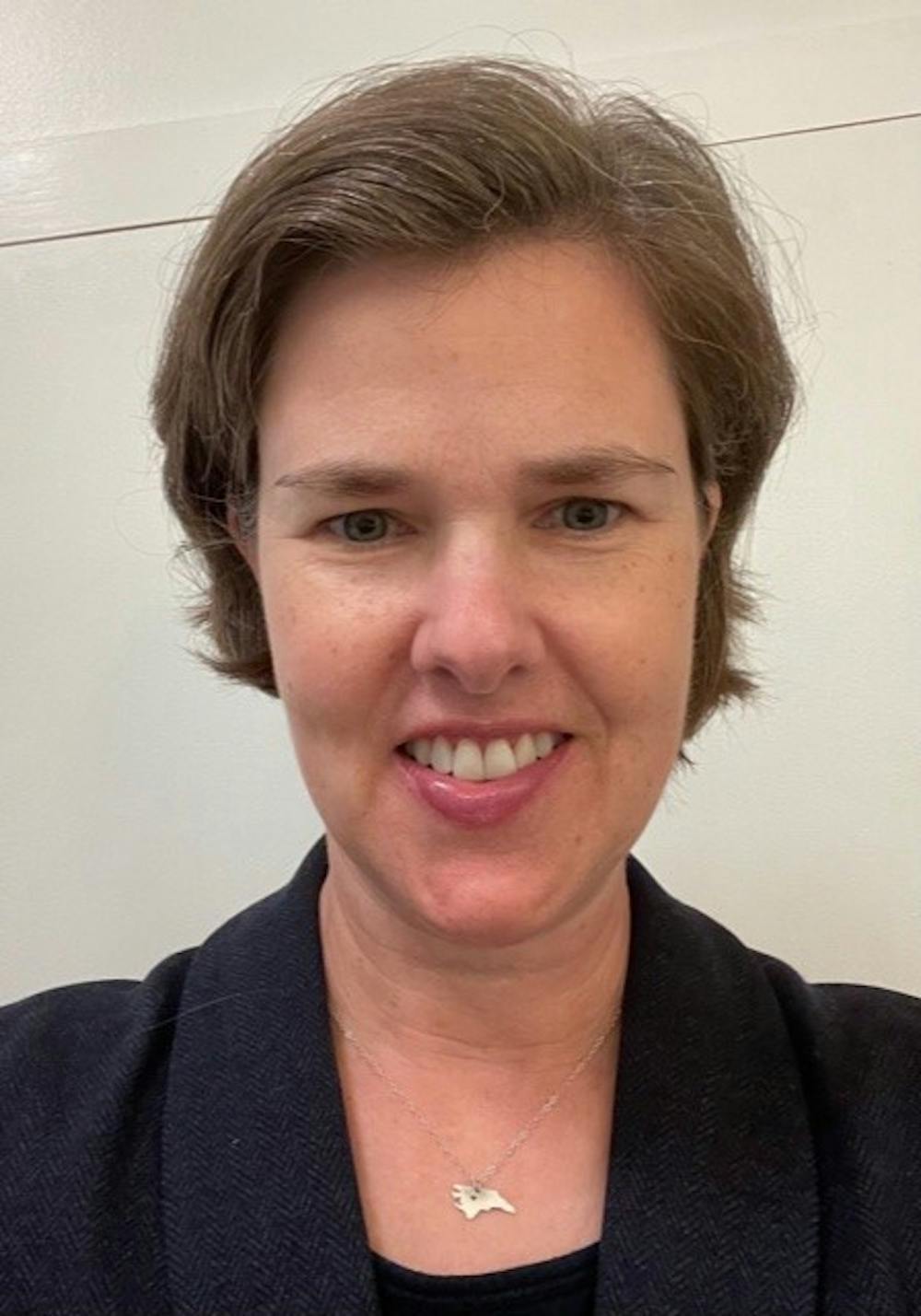After months of searching for a new Superior Court judge for Judicial District 15B of Chatham and Orange counties, Alyson Grine was sworn in as judge on Jan. 22.
Gov. Roy Cooper appointed Grine to fill the vacant seat formerly held by Carl Fox, who retired in October 2020 after more than 14 years on the court.
Grine said she is the first woman to be a Superior Court judge in the district and the only openly LGBTQ Superior Court judge in the state. She is looking forward to her new responsibilities as a judge, she said.
“The opportunity to play this role in our court system is exciting to me,” Grine said. “A trial judge has an important role to play in improving the public's confidence in the courts by interfacing with the public and trying to demonstrate in each case this case really matters and that we’re seeking justice in the case.”
Grine served as a prosecutor for the District Attorney’s Office of Durham since 2018. She was previously an assistant professor at the North Carolina Central School of Law, defender educator at the UNC School of Government and assistant public defender for District 15B in the District and Superior courts. She was also a law clerk for Judge Patricia Timmons-Goodson and Chief Justice Henry Frye.
Grine earned her bachelor’s degree in English at UNC, a Master of Arts in Spanish from the University of Virginia and her Juris Doctor at the UNC School of Law.
Former Senior Resident Superior Court Judge Carl Fox announced his retirement in a Facebook post on Aug. 21. He said he was the first Black judge in the district and the first Black district attorney in state history. He began serving as district attorney and Superior Court judge in 1986.
Fox said he will spend some of his retirement becoming a civil superior court mediator and volunteering with Save The Fox, a charity he and his wife started to locate bone marrow matches for patients diagnosed with blood cancer.
The charity began in 2015 after Fox was diagnosed with myelodysplastic syndrome (MDS), a form of blood cancer often referred to as preleukemia. Fox went into remission after receiving a cord blood transplant and was back in the courtroom in July 2016. He said the COVID-19 pandemic, which forced him to work virtually, was a sign to retire.




